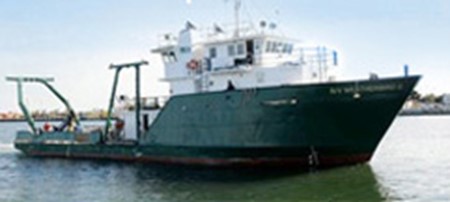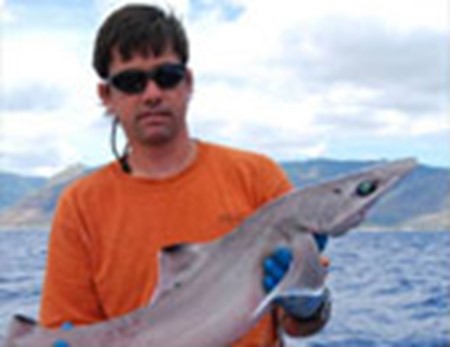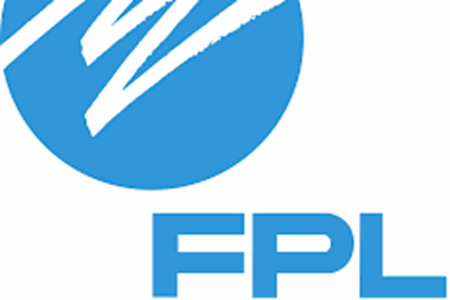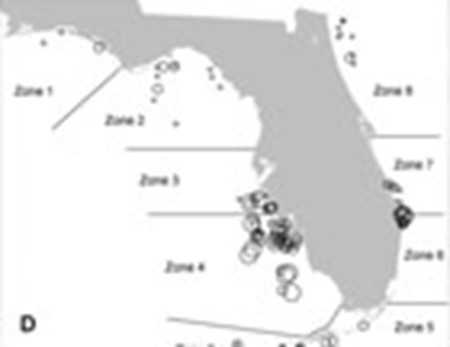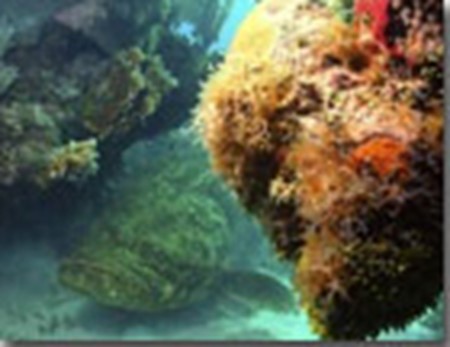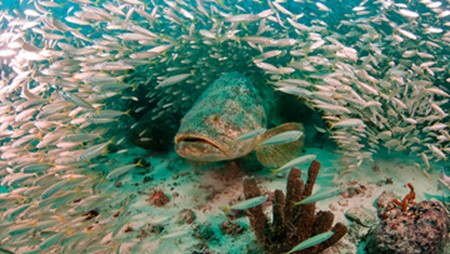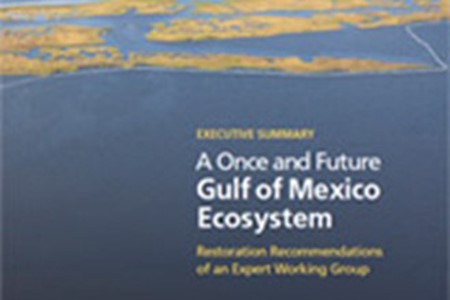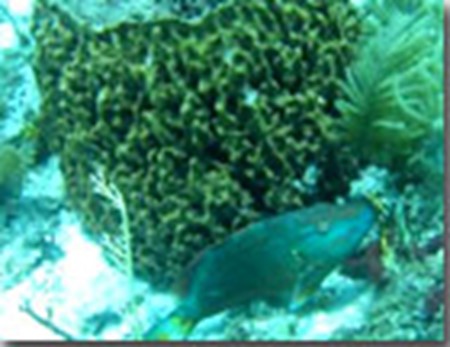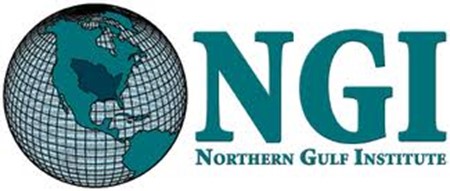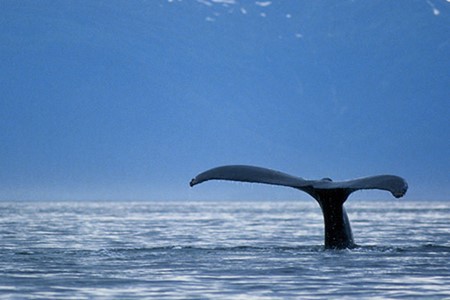The Deep-C Fisheries Ecology Team (Dr. Dean Grubbs, Dr. Chris Koenig, and Dr. Felicia Coleman) are offshore conducting research from the shelf-edge to the deep sea onboard the Florida Institute of Oceanography's research vessel, the RV WEATHERBIRD II. In between the all day and all night longline and trap sets, the cataloging of specimens, and everything else that goes along with a vigorous field program, they are taking turns writing a blog that appears on the Deep-C website and will continue on their trip from 8-17 October 2012. Check back often to find out what's going on.
Deep-C at Sea
The Gulf of Mexico Research Initiative (GOMRI), which is responsible for organizing the BP-funded research consortia studying the effects of the Deepwater Horizon oil spill, highlights the at-sea research of the Deep-C Consortium. FSUCML researchers Dr. Dean Grubbs, Dr. Chris Koenig, and Dr. Felicia Coleman, make up part of the ecology team and are working closely with the geochemists to determine paths of oil-related contaminants through the food web, particularly as it impacts economically important fish species.


